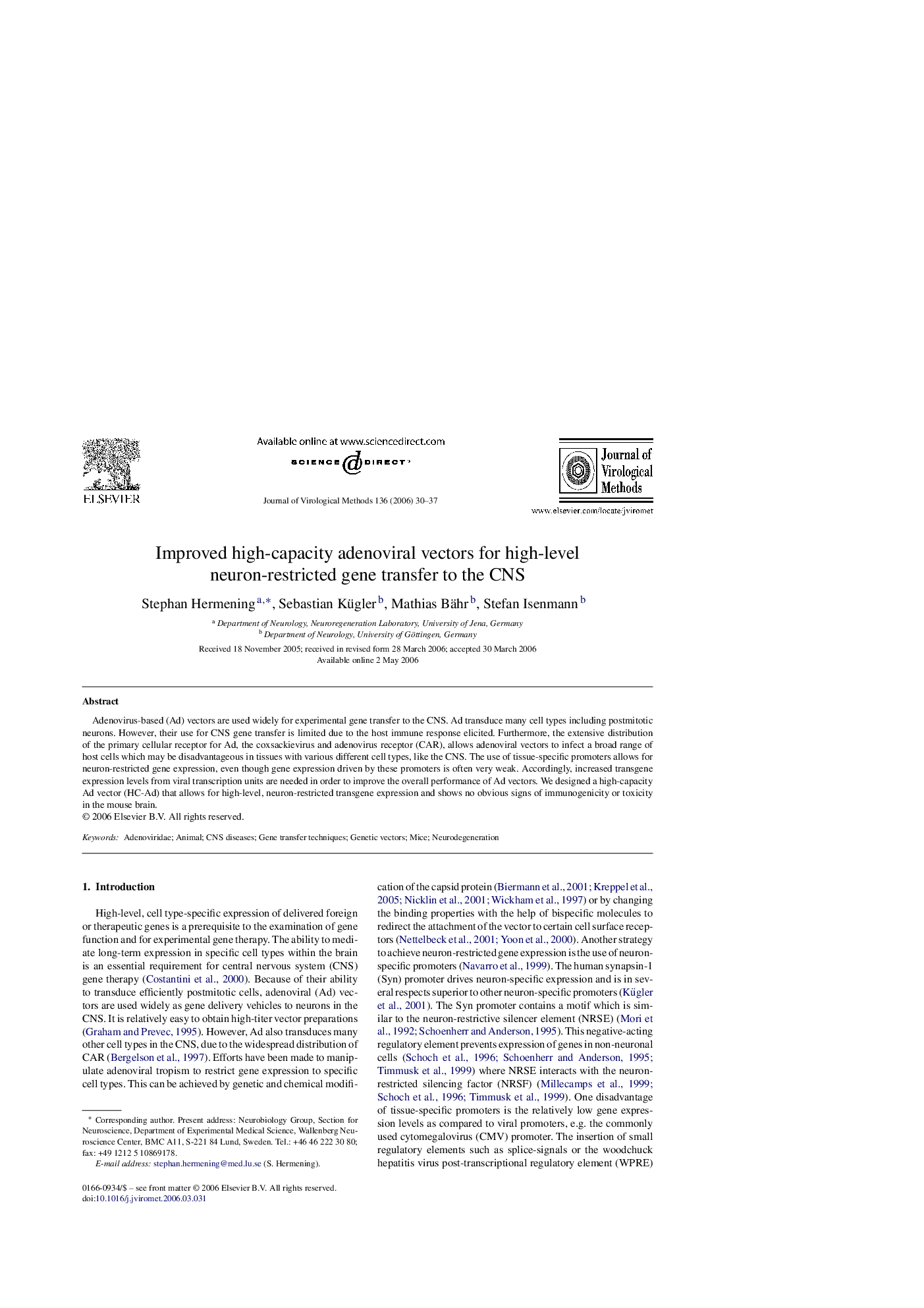| Article ID | Journal | Published Year | Pages | File Type |
|---|---|---|---|---|
| 3408527 | Journal of Virological Methods | 2006 | 8 Pages |
Adenovirus-based (Ad) vectors are used widely for experimental gene transfer to the CNS. Ad transduce many cell types including postmitotic neurons. However, their use for CNS gene transfer is limited due to the host immune response elicited. Furthermore, the extensive distribution of the primary cellular receptor for Ad, the coxsackievirus and adenovirus receptor (CAR), allows adenoviral vectors to infect a broad range of host cells which may be disadvantageous in tissues with various different cell types, like the CNS. The use of tissue-specific promoters allows for neuron-restricted gene expression, even though gene expression driven by these promoters is often very weak. Accordingly, increased transgene expression levels from viral transcription units are needed in order to improve the overall performance of Ad vectors. We designed a high-capacity Ad vector (HC-Ad) that allows for high-level, neuron-restricted transgene expression and shows no obvious signs of immunogenicity or toxicity in the mouse brain.
